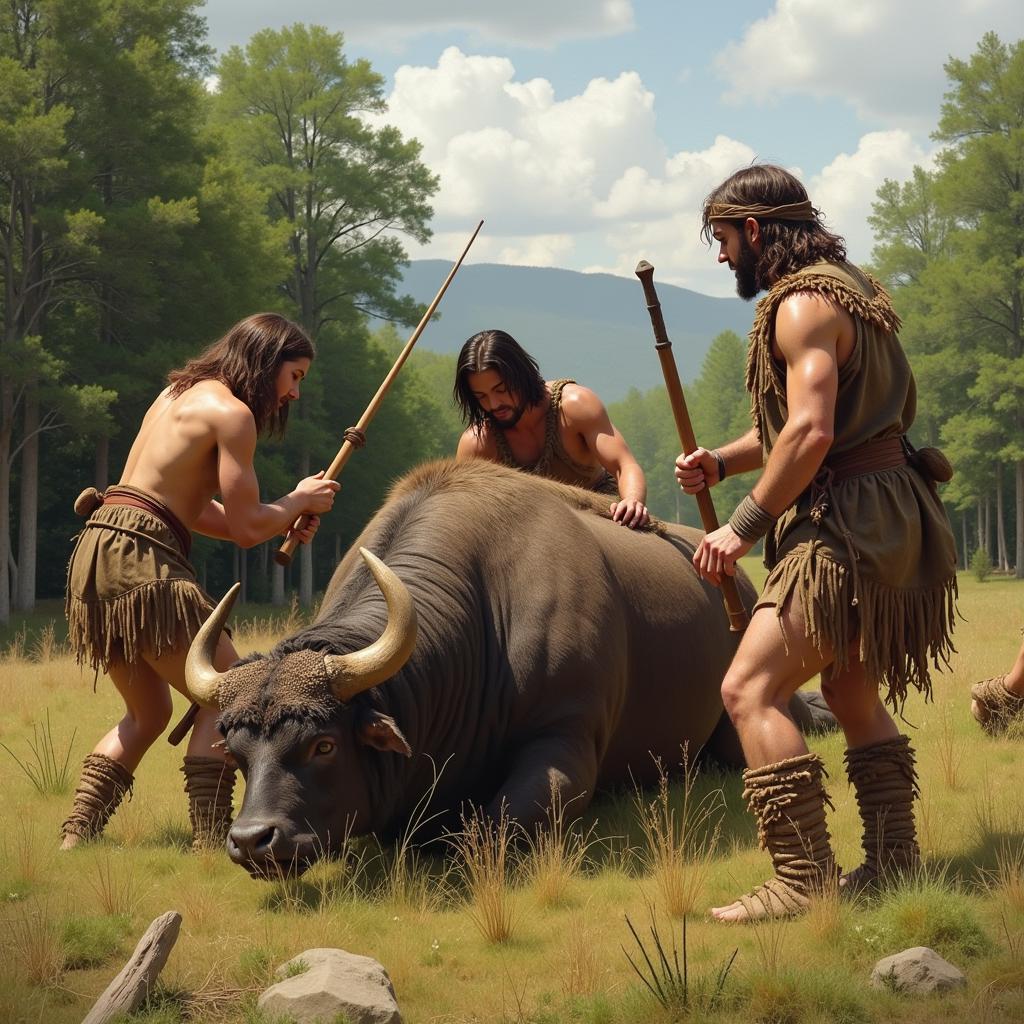The term “Huntsman Society” often evokes images of ancient tribes tracking prey through dense forests. However, understanding the concept in a modern context requires a deeper exploration beyond this simplistic view. This article delves into the complexities of the huntsman society, examining its historical roots, social structures, and relevance in contemporary society.
The Historical Context of the Huntsman Society
Historically, huntsman societies were defined by their reliance on hunting and gathering for sustenance. These societies, predating agriculture, were intrinsically connected to their environment, possessing intimate knowledge of the land and its resources. Their survival depended on cooperation, skillful tracking, and a deep understanding of animal behavior. Early examples of huntsman societies include Paleolithic groups and various indigenous communities across the globe. Their social structures were often egalitarian, with leadership based on skill and experience rather than inherited status.
 Early Depiction of a Huntsman Society
Early Depiction of a Huntsman Society
These societies developed complex systems of knowledge related to hunting techniques, tool making, and the natural world. This knowledge, often passed down through oral traditions and rituals, played a crucial role in their survival and social cohesion. While often viewed as primitive, huntsman societies demonstrate remarkable adaptability and resilience in diverse environments.
The Social Structure of Huntsman Societies
Huntsman societies were characterized by small, mobile groups often connected by kinship ties. The division of labor was typically based on gender and age, with men primarily responsible for hunting and women focusing on gathering and childcare. However, these roles were not rigidly defined, and flexibility was often essential for survival. Cooperation and sharing were fundamental values, ensuring the equitable distribution of resources and fostering social harmony.
Decision-making processes in huntsman societies were often communal, with important decisions discussed and agreed upon by the group. This collaborative approach fostered a sense of shared responsibility and ensured that decisions reflected the collective needs of the community. Furthermore, the intimate connection with nature fostered a spiritual worldview, with rituals and beliefs often centered around the natural world and the animals they hunted.
The Huntsman Society in the Modern World
While traditional huntsman societies are less prevalent in the modern world, their legacy continues to influence our understanding of human history and social organization. Studying these societies provides valuable insights into human adaptability, the importance of cooperation, and the complex relationship between humans and their environment. Moreover, many indigenous communities around the world still maintain aspects of a huntsman lifestyle, preserving traditional knowledge and practices.
Furthermore, the principles of cooperation, resourcefulness, and environmental awareness found in huntsman societies offer valuable lessons for contemporary society. As we grapple with issues like climate change and resource depletion, understanding how these societies lived in harmony with nature can inform more sustainable practices.
Conclusion
The huntsman society, far from being a relic of the past, offers valuable insights into human social organization and our relationship with the environment. By understanding their history, social structures, and enduring legacy, we can gain a deeper appreciation for the complexities of human society and the importance of sustainable living. The lessons learned from huntsman societies can inspire us to build a more equitable and environmentally conscious future.
FAQs
- What is the primary characteristic of a huntsman society? Reliance on hunting and gathering for survival.
- How were social roles typically divided in huntsman societies? Based on gender and age, but with flexibility.
- What values were crucial for survival in huntsman societies? Cooperation and sharing.
- Do any huntsman societies exist today? Some indigenous communities maintain aspects of the huntsman lifestyle.
- What can we learn from huntsman societies? Lessons about sustainability, cooperation, and human adaptability.
- How did huntsman societies make decisions? Communally, through group discussions.
- What was the spiritual worldview of huntsman societies often based on? The natural world and the animals they hunted.
You can also find more articles related to peace and cultural understanding on our website. Explore topics like [suggest related topics/articles].
Need further assistance? Contact us 24/7: Phone: 02043854663, Email: [email protected], or visit us at Zone 34, Bac Giang, 260000, Vietnam.